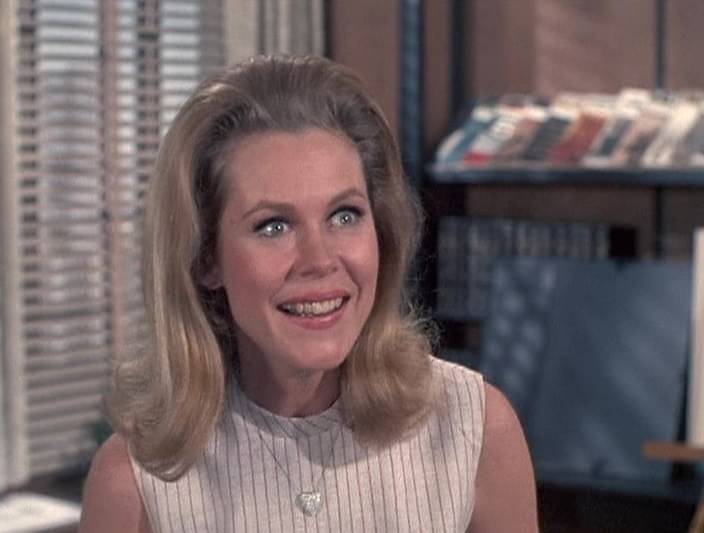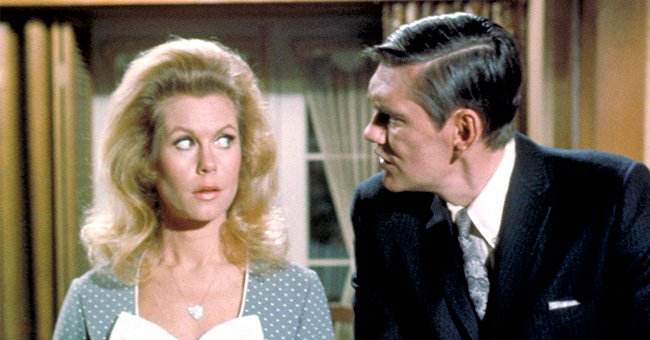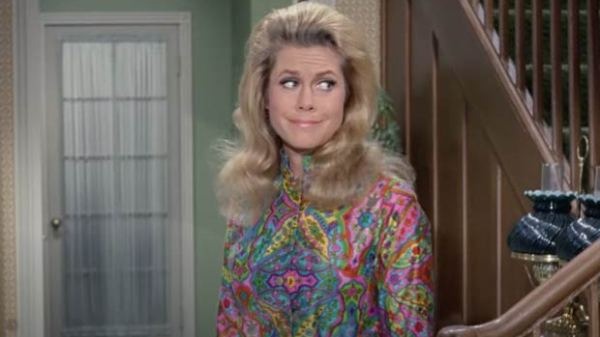The beloved 1960s sitcom Bewitched remains one of television’s most iconic shows, blending humor, magic, and family life in a way that captivated audiences worldwide. Premiering on ABC in 1964 and running for eight seasons until 1972, the show introduced viewers to Elizabeth Montgomery as Samantha Stephens, a kind-hearted witch navigating everyday life with her mortal husband, Darrin Stephens, played by Dick York (and later Dick Sargent).
Among the show’s many memorable episodes, Season 3’s premiere, “Nobody’s Perfect,” stands out as a fan favorite. First airing on September 15, 1966, this episode showcased Elizabeth Montgomery’s exceptional comedic timing while continuing the series’ theme of balancing magical mishaps with relatable family and work challenges.
The Premise of “Nobody’s Perfect”
In this episode, Samantha faces the pressure of impressing one of Darrin’s most challenging clients, Mr. Brockway, portrayed by actor Clinton Sundberg. As always, Samantha tries her best to manage the situation without relying on her powers. However, as fans of Bewitched know well, her magical abilities often appear at the most inconvenient times.
Despite her good intentions, Samantha’s attempts to maintain a perfect household and leave a positive impression quickly spiral into chaos. Her spells misfire, humorous accidents occur, and her efforts to act like a conventional suburban wife backfire in ways only Bewitched could deliver.
The story reflects a recurring theme throughout the series: the contrast between Samantha’s supernatural powers and her desire to live a normal, human life with Darrin. This ongoing struggle gave Bewitched its heart and made Samantha one of television’s most beloved characters.

Elizabeth Montgomery’s Performance
Elizabeth Montgomery’s portrayal of Samantha in “Nobody’s Perfect” highlights her unique ability to mix elegance with humor. Audiences were charmed not only by her character’s magical powers but also by her relatable struggles as a wife trying to fit into everyday suburban life.
Her expressions, comic timing, and signature nose twitch became defining elements of the show. In this episode, Montgomery balances Samantha’s determination to impress with her frustration over the uncontrollable results of her magic. This duality—graceful yet comedic—helped solidify her as a television icon of the 1960s.
Montgomery’s performance in Bewitched earned her critical acclaim, including five Primetime Emmy Award nominations for Outstanding Lead Actress in a Comedy Series. While she never won the award, her enduring influence on television remains undeniable.

Supporting Cast Contributions
While Montgomery’s performance was the highlight, the supporting cast in “Nobody’s Perfect” also played essential roles.
-
Dick York as Darrin: Known for his straight-man reactions, York added balance to the whimsical nature of Samantha’s magical antics. In this episode, his interactions with both Samantha and Mr. Brockway emphasize his constant challenge of juggling work, marriage, and the unpredictable results of his wife’s spells.
-
Agnes Moorehead as Endora: Though not central to this particular episode, Endora’s presence in Bewitched added depth to the show’s family dynamics. Her disapproval of Darrin and humorous clashes with him became a long-running subplot that fans loved.
-
Clinton Sundberg as Mr. Brockway: His performance as the demanding client perfectly complemented the Stephens’ struggle to impress, adding tension that set the stage for the comedic mishaps.
Together, the cast created a perfect blend of humor, heart, and situational comedy.

Themes That Resonated with Viewers
“ Nobody’s Perfect” carried themes that were not only entertaining but also relatable to audiences of the 1960s—and remain relevant today:
-
Striving for Perfection: Samantha’s attempts to appear flawless in front of her husband’s client mirror the pressure many people feel in their personal and professional lives. The episode humorously highlights the impossibility of being “perfect.”
-
Balancing Two Worlds: Samantha’s effort to suppress her magical nature reflects the broader challenge of balancing different aspects of identity—an idea that resonated with viewers juggling multiple roles in their own lives.
-
The Power of Humor in Adversity: Despite the chaos, the Stephens’ resilience and good humor carry them through. This positive outlook made the show not just funny but also heartwarming.
Cultural Impact of Bewitched
Episodes like “Nobody’s Perfect” played a significant role in shaping the legacy of Bewitched. The series became groundbreaking in several ways:
-
It was one of the first shows to center on a strong female lead who had powers beyond those of her husband. While Samantha often tried to suppress her magic, her abilities were an integral part of her character.
-
The show blended fantasy with everyday suburban life, influencing later sitcoms such as I Dream of Jeannie and more modern shows like Sabrina the Teenage Witch and WandaVision.
-
Bewitched also reflected social changes of the 1960s, including shifting gender roles and the growing independence of women. Samantha, while devoted to her family, was far from the typical housewife portrayal of the era.

Why “Nobody’s Perfect” Remains a Fan Favorite
More than 50 years after its original broadcast, “Nobody’s Perfect” continues to delight audiences through reruns and streaming platforms. Its timeless humor, Elizabeth Montgomery’s unforgettable performance, and the relatable themes ensure its place as one of the standout episodes of Bewitched.
Fans appreciate how the episode captures the essence of the show: lighthearted fun mixed with meaningful messages about family, identity, and acceptance. It represents what made Bewitched endure long after its finale in 1972.
Legacy of Elizabeth Montgomery and Bewitched
Elizabeth Montgomery’s role as Samantha remains her most iconic performance. Beyond the show, she went on to star in numerous television films and became a respected figure in the entertainment industry. Her portrayal of Samantha left an indelible mark on pop culture, inspiring generations of viewers and future creators.
Meanwhile, Bewitched continues to be celebrated through DVD collections, streaming availability, and recognition in television history retrospectives. The show was ranked among TV Guide’s “50 Greatest TV Shows of All Time” and continues to attract new fans discovering its magical charm.

Conclusion
Season 3, Episode 1 of Bewitched, “Nobody’s Perfect,” is a shining example of why the sitcom remains beloved decades after its original broadcast. With Elizabeth Montgomery’s captivating performance, strong supporting cast, and themes that remain meaningful today, the episode highlights the timeless appeal of mixing magic with everyday life.
As audiences continue to revisit the show, “Nobody’s Perfect” stands as a reminder that imperfection can be both funny and deeply human. It is this blend of humor, magic, and heart that ensures Bewitched will always hold a special place in television history.
